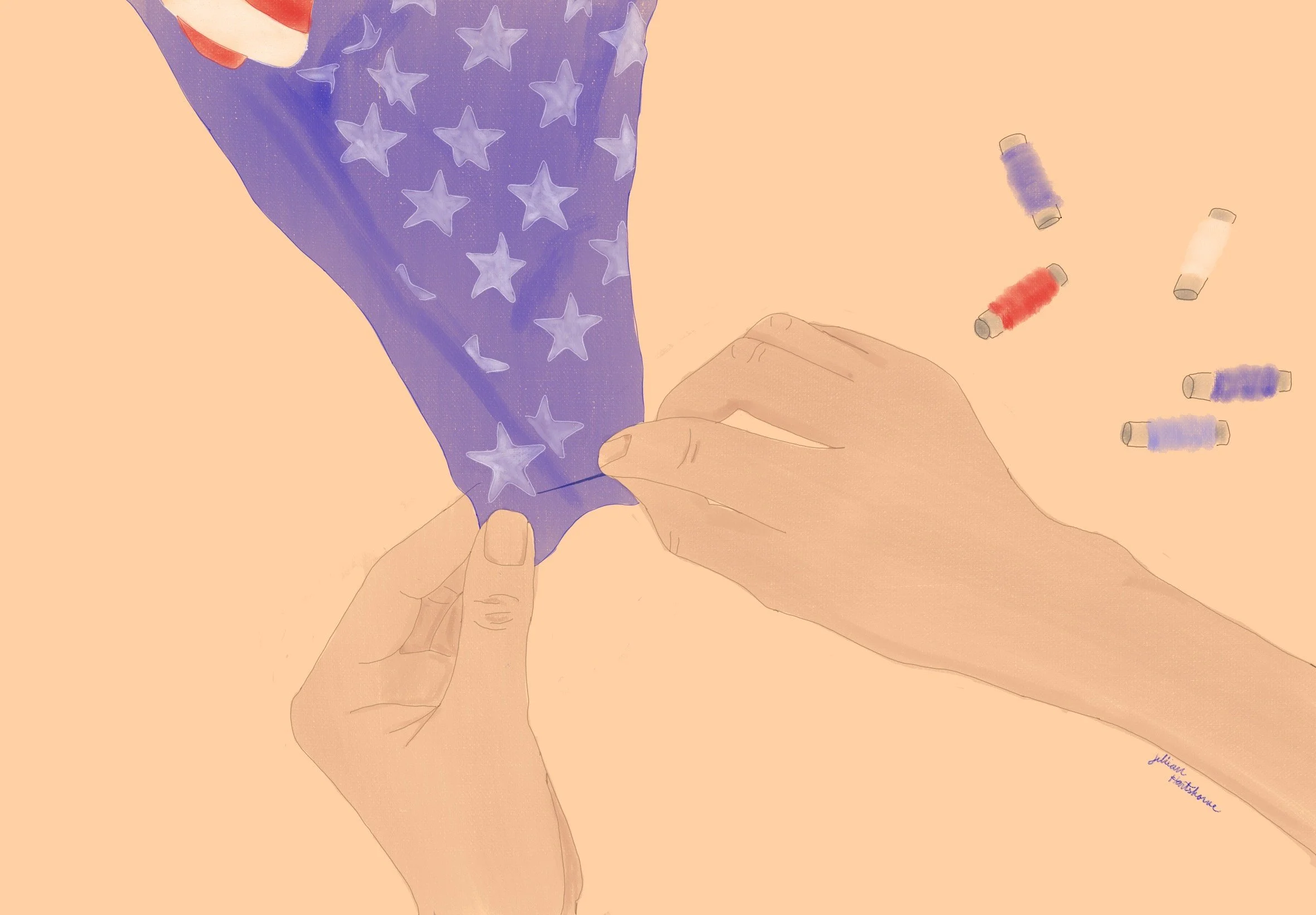Canada as the 51st State: How Likely Is It to Happen?
Article by Marcus Castillo | Art by Jillian Hartshorne
Over the past month or two, the United States has engaged in a trade war with its closest allies. Mexico and Canada have been receiving tariffs of as much as 25%, and while they are temporarily exempt, tension still soars. Recently, Donald Trump has pushed rhetoric for the annexation of Canada as the 51st state, and despite the political attention the remarks garnered, Canadian officials are in firm denial of the idea.
Trump claims that Canada would actually benefit from being the 51st state, suggesting it as a viable solution for many trade disputes and economic instability. When the Trump Administration enacted steep tariffs on Canadian imports, they were done in concern of drug trafficking and border security (Reuters 25). Trump hinted that Canada would avoid the economic consequences of these drastic tariffs by joining the US. While these statements are mainly performative, they have sparked serious debate within Canada's political sphere.
Newly elected Canadian Prime Minister Mark Carney has swiftly rejected any notation of annexation. In fact, in this first press conference he states that undeniably, Canada will remain sovereign and not entertain these discussions (Axios 25). Additionally, Canada has reinforced their independence, specifically by investing in the military, as Carney announced a $6 billion investment in the Arctic defense budget (AP News).
The people of Canada seem to agree with Carney. A recent poll by the Angus Reid Institute found that 90% of Canadians reject Trump's idea of annexation, as they fear it is a threat to their national identity and democracy. However, this isn’t completely unanimous, as small groups particularly in Alberta and Saskatchewan have pressed some interred in joining the US, due to economic grievances and frustration with the current federal government. These decisions are firmly in the minority however, and do not reflect the broader consensus.
These recent events go beyond just the US. As Trump’s America-First policies continue to drastically alter global trade relations and geopolitics, Canada is actively forming stronger economic alliances, mainly in Europe (The Guardian 25). And while the debate over annexation is speculative, it serves as a reminder of the shifting power dynamics in North America.
As of the time I’m writing this article, the idea of Canada as the 51st state remains more a political thought experiment rather than a possible reality. However as economic pressure increases, and trade disputes continue, this conversation is far from over.
Works cited
“Canada's Carney Says Trump Must Stop Comments Before Bilateral Talks Can Start.” Reuters, 17 Mar. 2025, www.reuters.com/world/americas/canadas-carney-says-trump-must-stop-comments-before-bilateral-talks-can-start-2025-03-17/.
“Meet the Canadians ‘Over-the-Moon’ at the Prospect of Joining the US.” New York Post, 15 Mar. 2025, nypost.com/2025/03/15/world-news/some-canadians-in-alberta-want-to-join-the-us-as-the-51st-state/.
“New Prime Minister Mark Carney Visits Paris and London Amid U.S. Tensions.” The Guardian, 17 Mar. 2025, www.theguardian.com/world/2025/mar/17/canada-new-prime-minister-mark-carney-paris-london-visit/.
“The 51st State That Never Was: Why the United States Didn’t Annex Canada.” War on the Rocks, Feb. 2025, warontherocks.com/2025/02/the-51st-state-that-never-was-why-the-united-states-didnt-annex-canada/.
“Trump’s Tariffs on Canada Spark Controversy Over Trade and Sovereignty.” Axios, 14 Mar. 2025, www.axios.com/2025/03/14/mark-carney-canada-prime-minister-sworn-in-51-state-trump/.
“U.S.-Canada Relations Strained as Canada Invests $6 Billion in Arctic Defense.” AP News, 16 Mar. 2025, apnews.com/article/d44e557453bc402a8c4e617041e262b0/.
